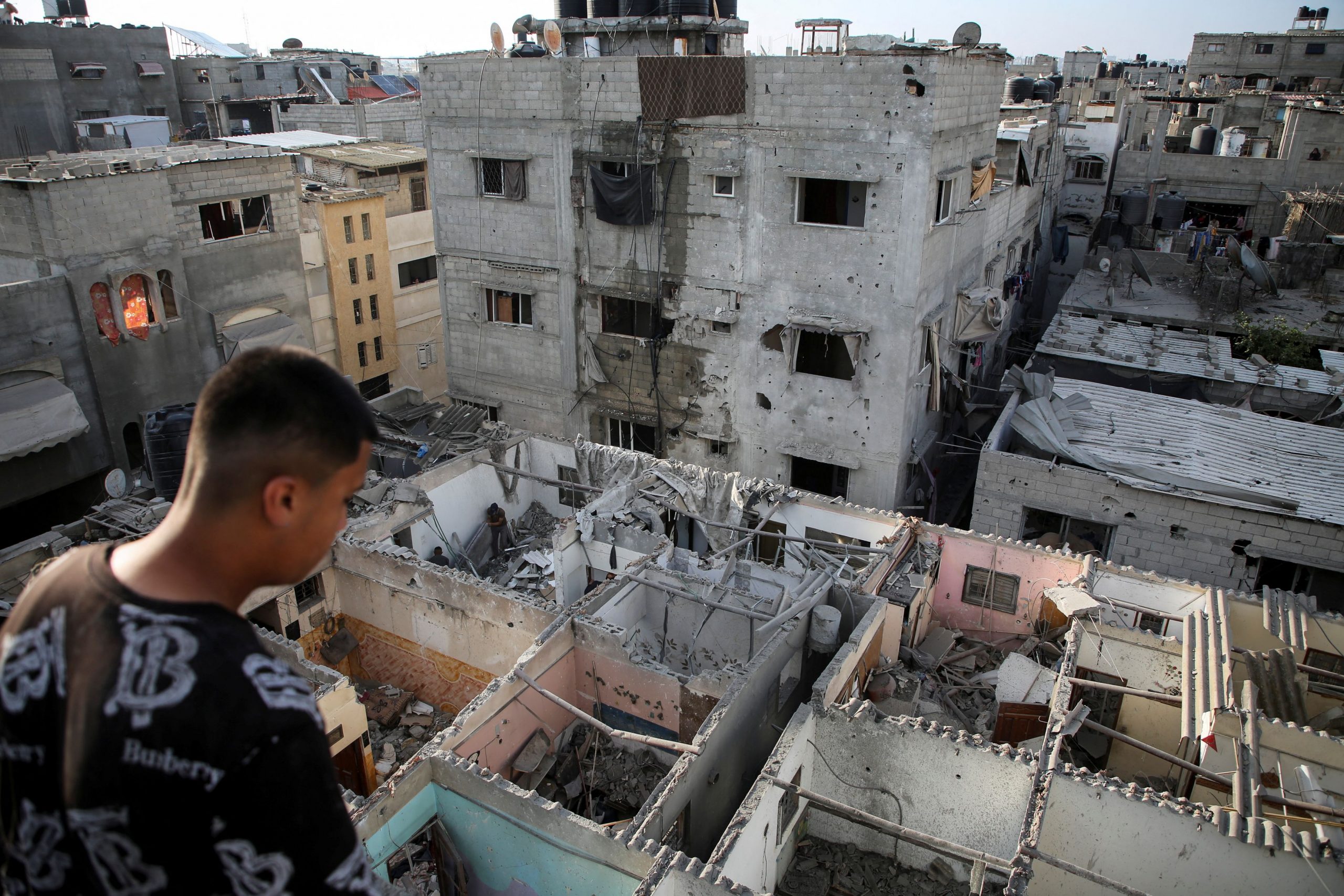TEL AVIV—Israel sent tanks into Rafah and took control of a key crossing linking the Gaza Strip to Egypt, securing a strategic corridor as it ramps up preparations for a military offensive in the border city.
Israeli military footage showed its tanks entering the Gaza side of the Rafah crossing. The move followed a series of airstrikes against Hamas targets and warnings for civilians in the eastern part of Rafah to evacuate to zones in the west.
Israeli and Hamas delegations were set to head to Cairo on Tuesday to discuss Hamas’s terms to pause the fighting for an exchange of some of the 128 hostages taken on Oct. 7 and held by Hamas and Palestinian prisoners held by Israel. The terms fell far short of what Israel could accept, Benny Gantz , a member of Israel’s war cabinet, said Monday.
Israel’s military said it had intelligence that Hamas fired rockets killing Israeli soldiers from the border-crossing area on Sunday, and that it had engaged in an operation that is “very precise and limited in space” to eliminate the group’s militant infrastructure.
Twenty militants were killed, three tunnel shafts were discovered and special forces are continuing to scan the area, according to the Israeli military. An explosive-laden car driving toward Israeli troops was struck. No Israeli soldiers were injured, according to the military.
Israel has long been concerned that the border area with Egypt has been a route for smuggling weapons and people into Gaza and is a critical element of Hamas’s military supply chain. It has pressed for tighter controls in the Philadelphi Corridor, which runs the length of the border, a move that could raise issues with a 1979 peace treaty between Israel and Egypt that limits the troop presence on both sides.
“The corridor is much more important than the four battalions of Hamas that you have in Rafah,” said Ofer Shelah, a military analyst with the Tel Aviv-based Institute for National Security Studies and a former politician. “Hamas has been resupplying itself and reinforcing itself mainly from the Sinai desert.”
Analysts say the increased military activity in Rafah is directly tied to the negotiations and aimed at increasing pressure on the militant group. “If Hamas will not go into a deal, Israel is keen to go further into Rafah,” but could potentially stop with the crossing, said Israel Ziv, a former commander of the Israeli military’s Gaza Division.
The Israeli military didn’t say how long the operation would last. It said the “vast amount of people” had heeded its call to evacuate eastern Rafah ahead of the operation.
The U.S. has pressed Israel not to attack Rafah, fearful of the humanitarian toll. More than one million Palestinians are currently sheltering in Rafah, most of them displaced from their homes in other parts of the Gaza Strip during the seven-month war.
More than 34,000 Palestinians have been killed since the start of the offensive in Gaza, most of them civilians, according to Palestinian authorities, who don’t specify how many were combatants. Israel invaded Gaza after a Hamas-led attack on southern Israel on Oct. 7 killed some 1,200 people, most of them civilians, according to Israel.
Israel stepped up its operations around Rafah after Hamas’s military arm on Sunday launched rockets and mortars toward the Kerem Shalom border crossing controlled by Israel, killing four soldiers and wounding several others. Hamas’s military arm claimed responsibility for the attack. Israel said the border crossing, one of two main entryways for aid into Gaza along with the Rafah crossing, remained closed on Tuesday.



